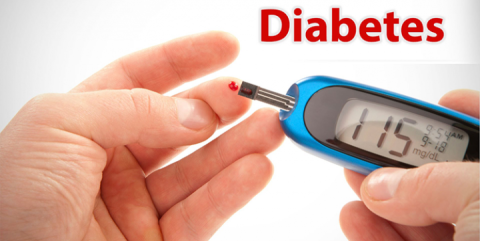
Four years ago Humphrey Wainaina, 69, had gone to a clinic to have his routine glucose test done when he was found to have high blood glucose and subsequently diagnosed with diabetes. “Prior to my diagnosis I felt that my body could not tolerate sugar anymore and anytime I had sugar, I would feel nauseated,” he says. “In the same day I was diagnosed with diabetes, my blood pressure was taken and I was found to have hypertension.”
Soon after he saw a physician who placed him on medication for diabetes and hypertension and was counseled on dietary and lifestyle change.
Diabetes Type 2 is a condition that leads to elevated blood sugar levels which subsequently cause complications in the body if not well managed. It is estimated that there are over 500,000 people living with diabetes in Kenya today and the number is expected to rise in the future. Diabetes is caused by various factors including lifestyle and familial.
“In our family, my mother and a number of her blood relatives have diabetes, yet from my father’s side, nobody has diabetes,” he says. One of his siblings died of diabetes complications while two others have developed the condition in recent times bringing the number of people with diabetes in his immediate family to five.
Since his diagnosis, his life changed drastically. “I used to take alcohol of which I stopped, and there were things I used to eat which I also stopped.” Whereas his physical condition remained normal, it is until about two years ago when he has significantly lost some weight. Diagnosis also meant he was to be on medication consistently something he found awkward in the beginning but has gotten used to.
The cost implication for managing the condition is quite high. “If you don’t have money, you will find it very difficult,” he says. He visits the clinic every three to four months which cost him 2000 per visit and once in a while he undergoes comprehensive blood testing costing Ksh. 10000. Every week he spends about Ksh. 2700 on medications which results to about Ksh. 11,000 monthly. Annually it cost over Ksh. 150,000 to manage his condition. “Many people in the rural areas are not financially capable of living with diabetes,” he says.
He is optimistic about his future as long he takes medication. “If you fail to take your medicines, you can develop complications and die,” he says. “Therefore one has to consistently take the drugs.” Sometimes he has ignored the medicines out of boredom including recently when he failed to take them for four days. “I felt a change in my body and when I went to test for glucose, it was found to be high at 25 millimoles.” The normal blood sugar is 3.5 to 6.9 millimoles.
He occasionally engages in physical exercise activities although due to his age, he finds it tiresome. “Young persons can tolerate exercise better since they are energetic.” Sometimes back he used to skip a rope but no longer does. “The most important thing is to adhere to dietary advice, otherwise you get sick.”
He is happy that the condition, due to good medical care he gets, has not affected his productivity much. “My work has not changed much and I am able to go on with my duties as before,” he says.
“If you do not have diabetes, it is important you get frequent medical check-ups to detect the condition early and if you do, following your doctor’s advice is critical to maintaining a healthy lifestyle,” he advises.